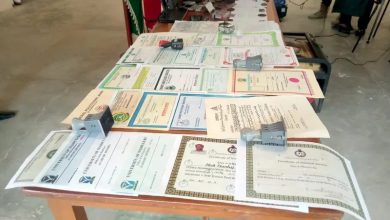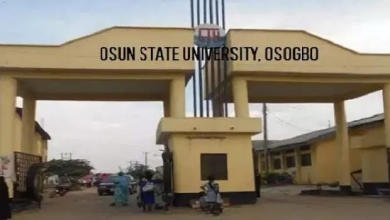Kaduna To Train 32,000 Graduates In Vocational Skills Annually
Kaduna State has launched an ambitious vocational institute to train 32,000 learners annually across 14 trades.
The program targets youth, women and vulnerable groups, boosting skills, employment and economic growth.
The Kaduna State Government has unveiled plans to train and graduate approximately 32,000 learners annually through its newly established Institute of Vocational Training and Skills Development, as part of its efforts to combat unemployment and develop a skilled workforce.
Commissioned in June by President Bola Ahmed Tinubu, the Institute has campuses at Rigachikun, Soba, and Samaru Kataf, all equipped with modern training facilities.
The centres will deliver practical, lifelong, and globally competitive skills across 14 trade areas accredited by the National Board for Technical Education (NBTE). These include:
- Painting and decoration
- Masonry
- Tiling
- Plumbing
- Carpentry and joinery
- Welding and fabrication
- Electrical installation
- Aluminum fabrication
- Refrigeration & air conditioning
- Solar installation
- Mechatronics
- Computer hardware repairs and maintenance
- Catering and hospitality
- Fashion design
During a speech on Friday, Commissioner for Information Malam Ahmed Maiyaki referred to the institute as “a significant step towards empowering youth and promoting economic growth.”
“The 14 trade areas are carefully selected to address critical manpower needs in construction, energy, ICT, hospitality, and the creative industries. Graduates will not only find employment but also create opportunities for others,” he said.
According to the state government, training will be based on the Nigerian Skills Qualification Framework, with 80% of the sessions delivered hands-on in workshops and workplace environments.
Enrolment is open year-round, with morning and afternoon shifts. Special consideration will be given to women, persons with disabilities, and vulnerable groups, such as Almajiris.
The programmes include:
- Short-term courses (3 months): leading to NSQ Unit Certificates or Institute Competence Certificates.
- Medium- and long-term courses (6–12 months): leading to full NSQ qualifications at Levels 2–4.
Provost of the Institute, Malam Husaini Haruna Muhammad, said the training would produce “graduates who are workplace-ready and globally competitive.”
The institute employs a teaching model that combines qualified instructors, master craftsmen, and retired industry practitioners, ensuring that learners acquire both theoretical and practical expertise.
With full NBTE accreditation, the initiative is part of the Federal Government’s Technical and Vocational Education and Training (TVET) drive.



